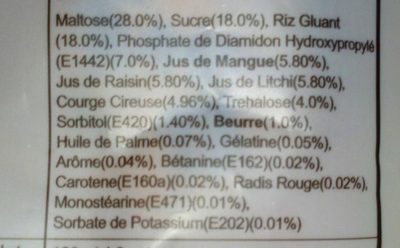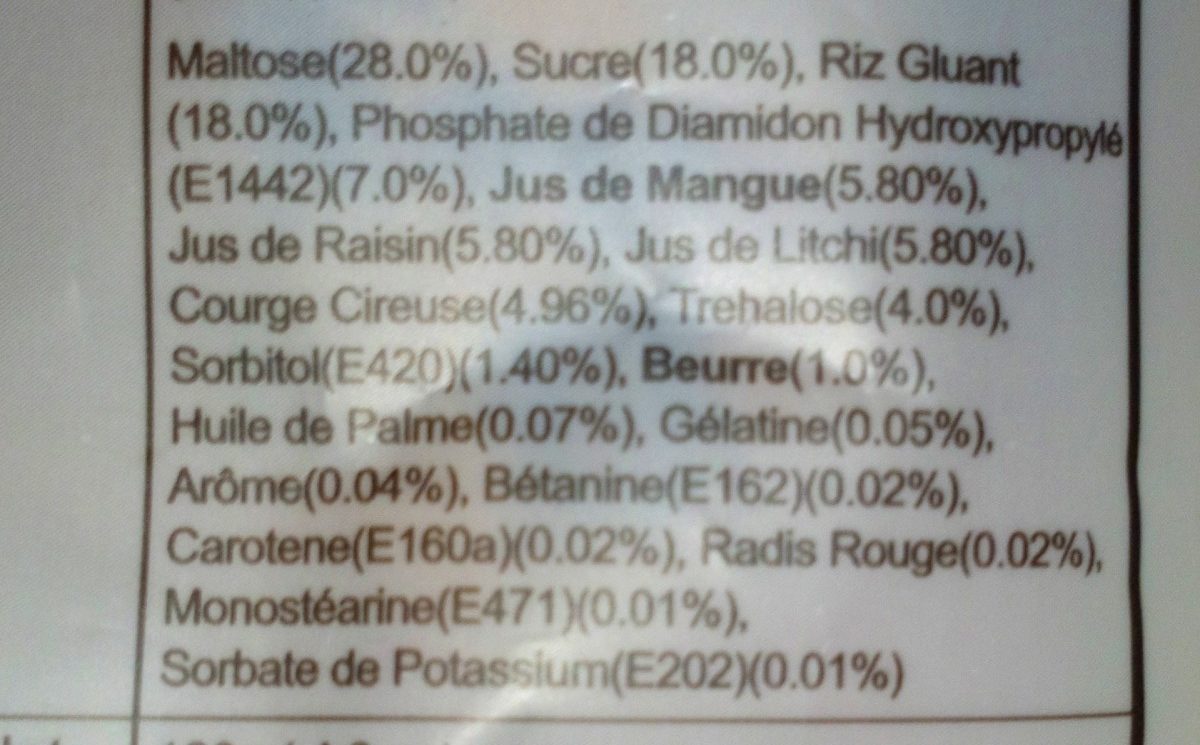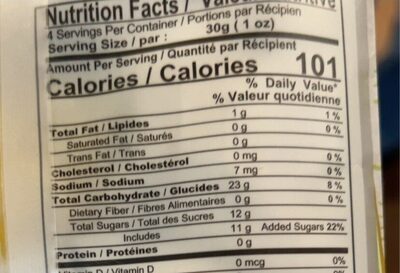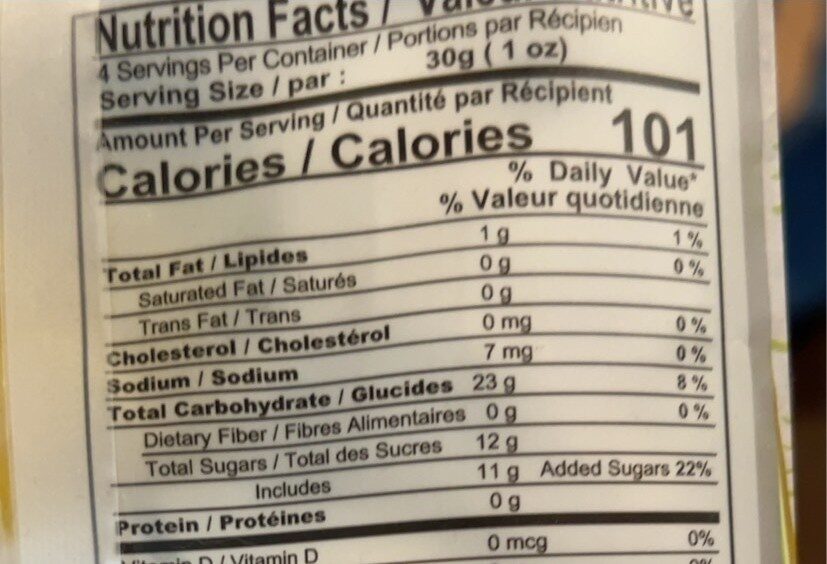Tropical fruity mochi - Royal Family - 120 g
This product page is not complete. You can help to complete it by editing it and adding more data from the photos we have, or by taking more photos using the app for Android or iPhone/iPad. Thank you!
×
Barcode: 4711931031419 (EAN / EAN-13)
Common name: Mochis aux fruits tropicaux (passion, mangue, litchi) - Tropical Fruity Mochi : Lychee, Mango, Passion Fruit
Quantity: 120 g
Brands: Royal Family
Categories: Snacks, Desserts, Sweet snacks, Biscuits and cakes, Cakes, Pastries, Mochi
Manufacturing or processing places: Taïwan
Countries where sold: France
Matching with your preferences
Environment
Packaging
Transportation
Threatened species
Report a problem
Data sources
Product added on by kiliweb
Last edit of product page on by lamplis.
Product page also edited by beniben, openfoodfacts-contributors, packbot, yuka.U-tyHvGmPPw4M8fS8bs97hupD-jDBs14RE9Uow, yuka.Ub1YLIKJT9AqDcDZiKM18Si7LrveLvZVQEIhog, yuka.WTQwTkU1b1RxZGc3eGZReHpBemwxdHdvNlk2eWVucnVEODRNSVE9PQ, yuka.sY2b0xO6T85zoF3NwEKvlkBAQd-OmizqKRLflUyJ5eyCNp-1eotd6JTDbao, yuka.sY2b0xO6T85zoF3NwEKvlmJ5C9nMmjPvNAHvxXOlwfueH4biOYpf0pSgF6s, yuka.sY2b0xO6T85zoF3NwEKvlmVHccXPpjTBbRPfxUSFnPynPpXMT9NXvZCqLas, yuka.sY2b0xO6T85zoF3NwEKvlmlOTPjA_RHAHj7hok6r2dqJAprTYdBz5orLFas, yuka.sY2b0xO6T85zoF3NwEKvln5_bdyOjG3ALC3niXLW4uXSEJzqRvMs-JXfEqo.











